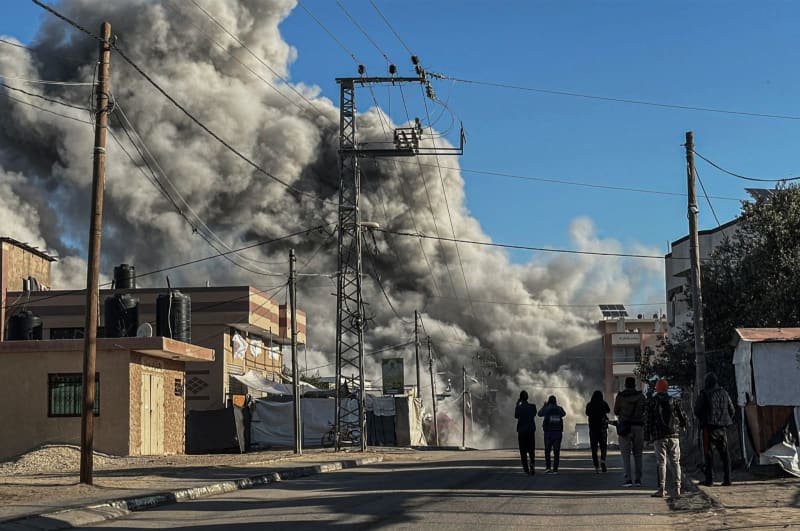On Saturday, escalating violence between Israel and Gaza resulted in the deaths of multiple individuals, including employees of an aid organization. The Israel Defense Forces (IDF) conducted an airstrike targeting a car in the vicinity of Khan Younis, claiming that the operation was aimed at a suspect involved in the October 7 attacks carried out by Hamas militants, which had ignited the current conflict. According to the Palestinian news agency WAFA, five people were killed, three of whom were identified as staff members of World Central Kitchen (WCK), an organization dedicated to providing meals in humanitarian crises. The charity expressed deep sorrow over the loss, stating that they were “heartbroken” to confirm that their colleagues were struck while carrying out their mission in Gaza.
The IDF asserted that it had been closely monitoring the individual in question, citing “credible information regarding his real-time location.” In its defense, the military noted that it had previously warned aid organizations to make known their local staff members’ identities, as it sought to fend off the potential exploitation of the humanitarian sector by terrorist groups. The targeted individual was reportedly linked to the massacre executed by Hamas militants on October 7, which included attacks on Israeli towns and citizens. However, the military’s statement did not clarify the identities or affiliations of the other fatalities associated with the airstrike, leaving a significant amount of uncertainty regarding the incident.
Meanwhile, World Central Kitchen has faced tragic losses before—during a previous strike in April, seven of its employees were killed in similar circumstances. The Israeli military acknowledged a “serious failure” at that time, reflecting the complexities and dangers present in the conflict zones where humanitarian organizations operate. Following the most recent airstrike, WCK announced a temporary suspension of its operations in Gaza, citing a lack of prior knowledge about any alleged associations of the individuals involved with the Hamas attack. This development highlights the precarious situation that humanitarian entities face in conflict areas, where they often operate on the frontlines, trying to provide help amid escalating violence.
In addition to the tragic incident involving WCK staff, reports from WAFA indicate that the violence continued unabated across Gaza that same day, with a further eight people killed in a separate Israeli airstrike near Khan Younis. The humanitarian crisis in the region has been steadily worsening as the conflict persists, raising significant concerns about civilian safety and access to aid. In Gaza City, additional reports suggested that 14 individuals lost their lives due to ongoing Israeli attacks, contributing to the escalating death toll in the region as the IDF continues its military operations.
The IDF has stated that it is investigating the claims regarding the civilian casualties, though the nature of the conflict has hindered independent verification of these incidents. This lack of accessible information underscores the challenges faced by journalists and human rights organizations trying to document the realities on the ground amid a rapidly changing and dangerous environment. The situation remains delicate, as both Israeli military actions and Hamas responses raise significant ethical and humanitarian questions related to the impact on civilian populations.
As the war continues, the international community has been increasingly vocal regarding the need for accountability and the protection of innocent lives. Humanitarian organizations like WCK are critical in providing essential services, yet their workers increasingly find themselves at risk due to the complex interplay of military actions and humanitarian efforts. The most recent developments illustrate the profound impact this conflict has not only on civilians caught in the crossfire but also on the operations of nonprofits working to mitigate the humanitarian fallout of such violence. Without urgent interventions and a concerted effort towards peace, the cycle of violence and tragedy is likely to persist.

